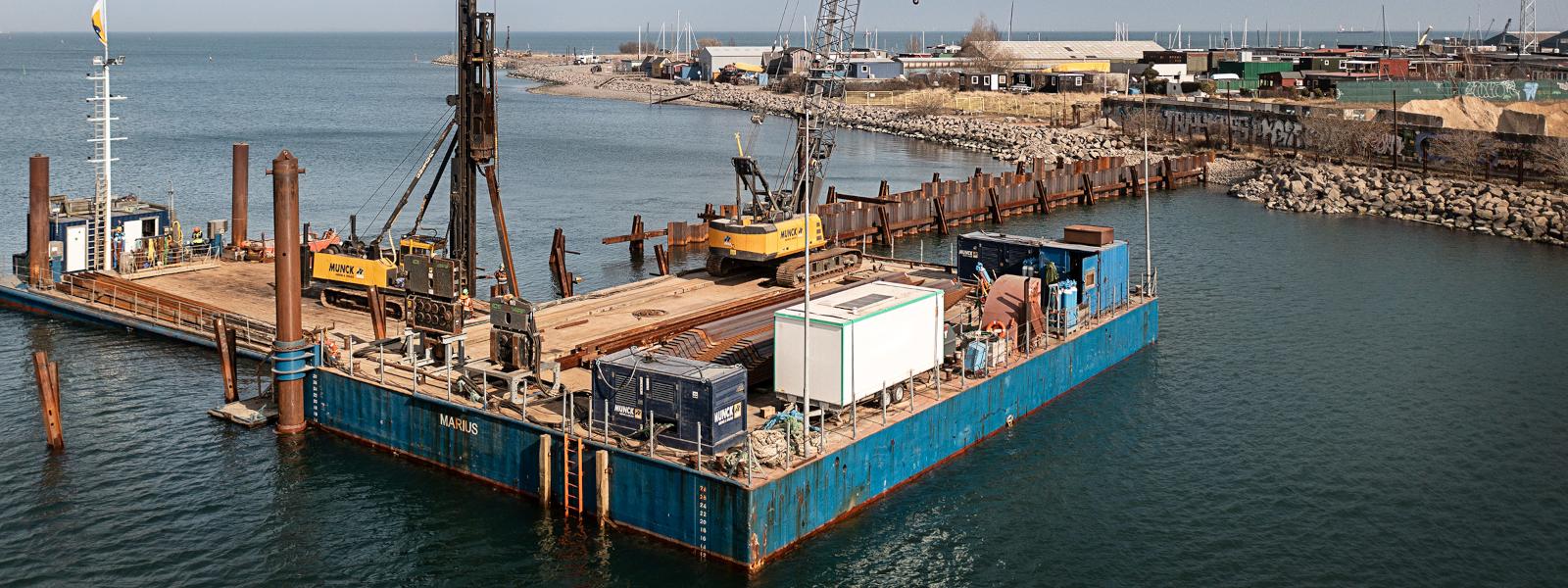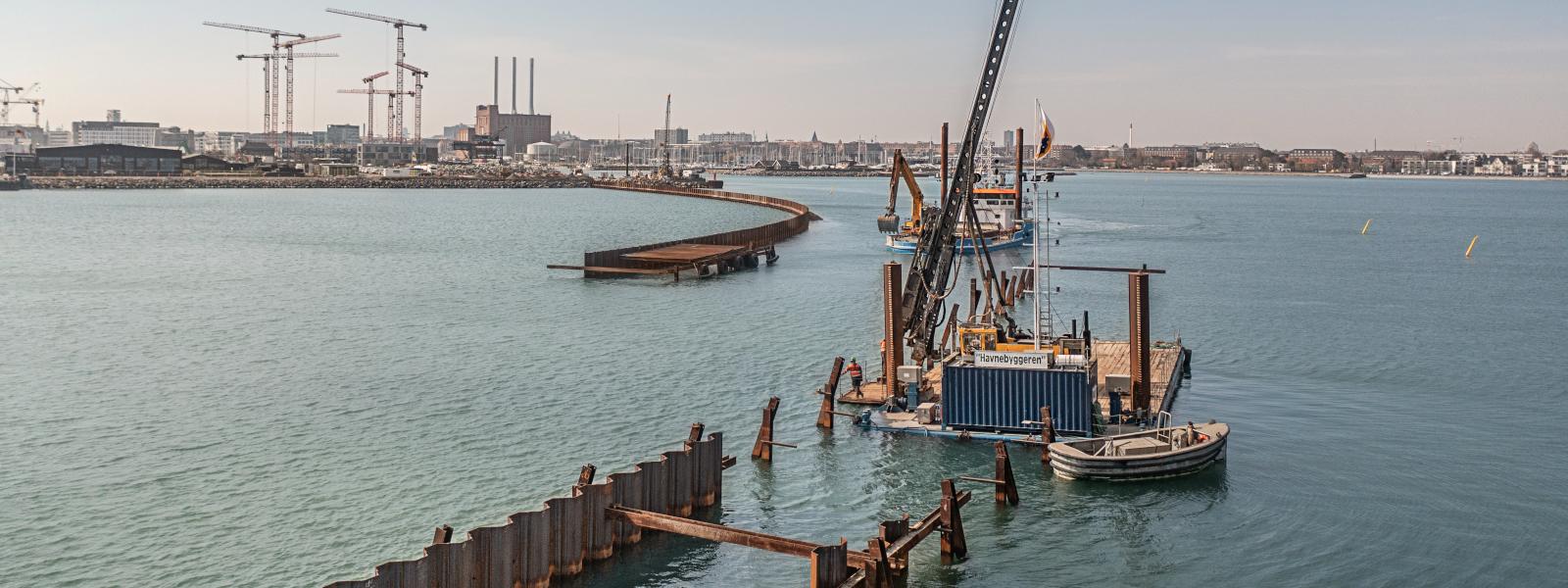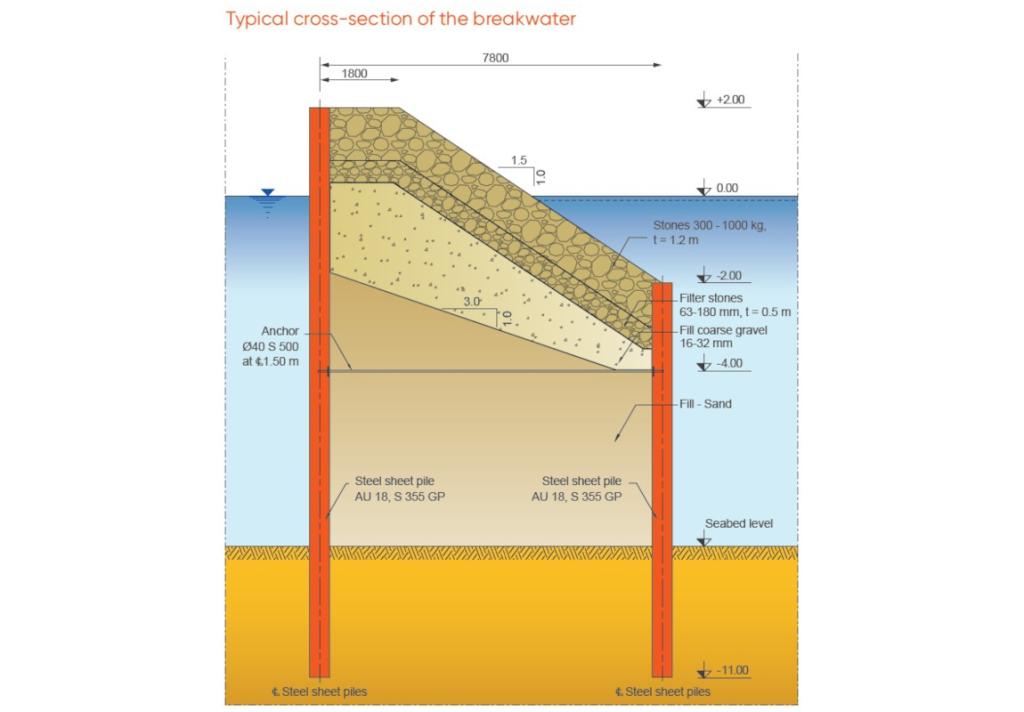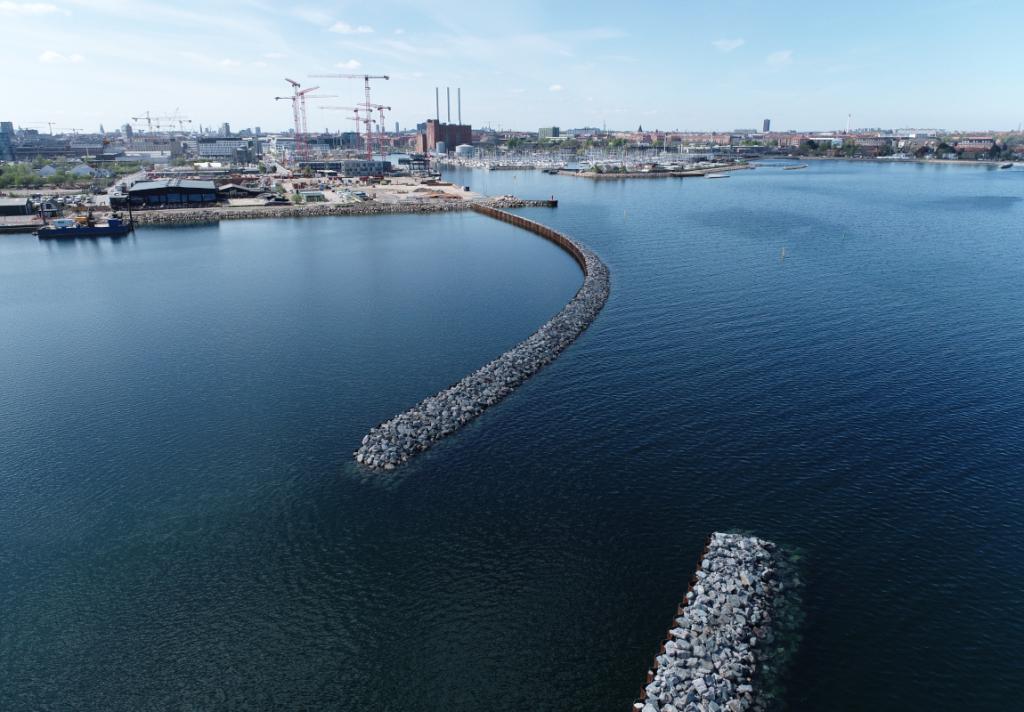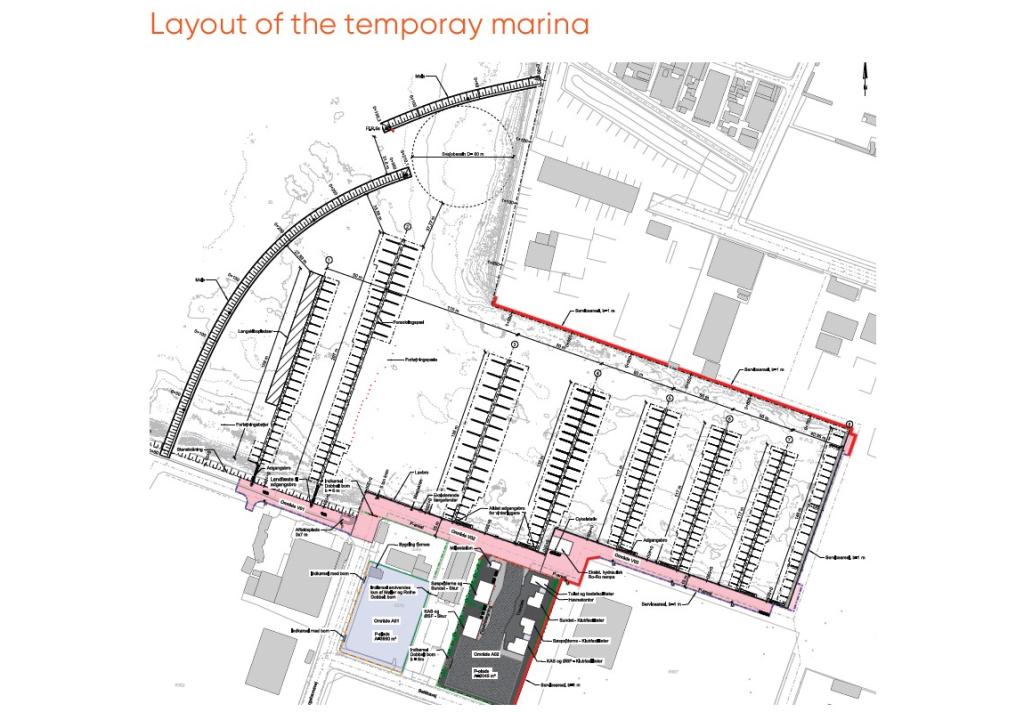Erstatningshavn Færgehavn Nord, DK | 2021
Port of Copenhagen
The Vejdirektoratet (Danish Road Directorate) is in charge of the construction of the project Nordhavn Tunnel in Copenhagen, an essential element of the planned urban development of Nordhavn, a new urban are which will eventually have 40 000 inhabitants and as many jobs. The tunnel is built on behalf of Copenhagen Municipality, who is financing the project together with By & Havn and the future company for Lynetteholmen. The project entails the construction of a 1.4 km tunnel across the Svanemølle Bay. After completion the ownership of the tunnel will be handed over to Copenhagen Municipality.
As the tunnel is to be built with the cut and cover method, it requires a temporary closure of a large portion of the Svanemøllen harbour. During the construction phase harbour facilities and about half of the boat floating docks will be moved to the nearby Færgehavn Nord harbour. The temporary marina called Erstatningshavnen (Replacement Harbour) includes the construction of floating docks for berthing approximately 600 boats, a new breakwater and a new crane area. The existing dockside walls consist of steel sheet piles with one anchor level constructed in the 1960’s and will be kept.
Download
 English
English
